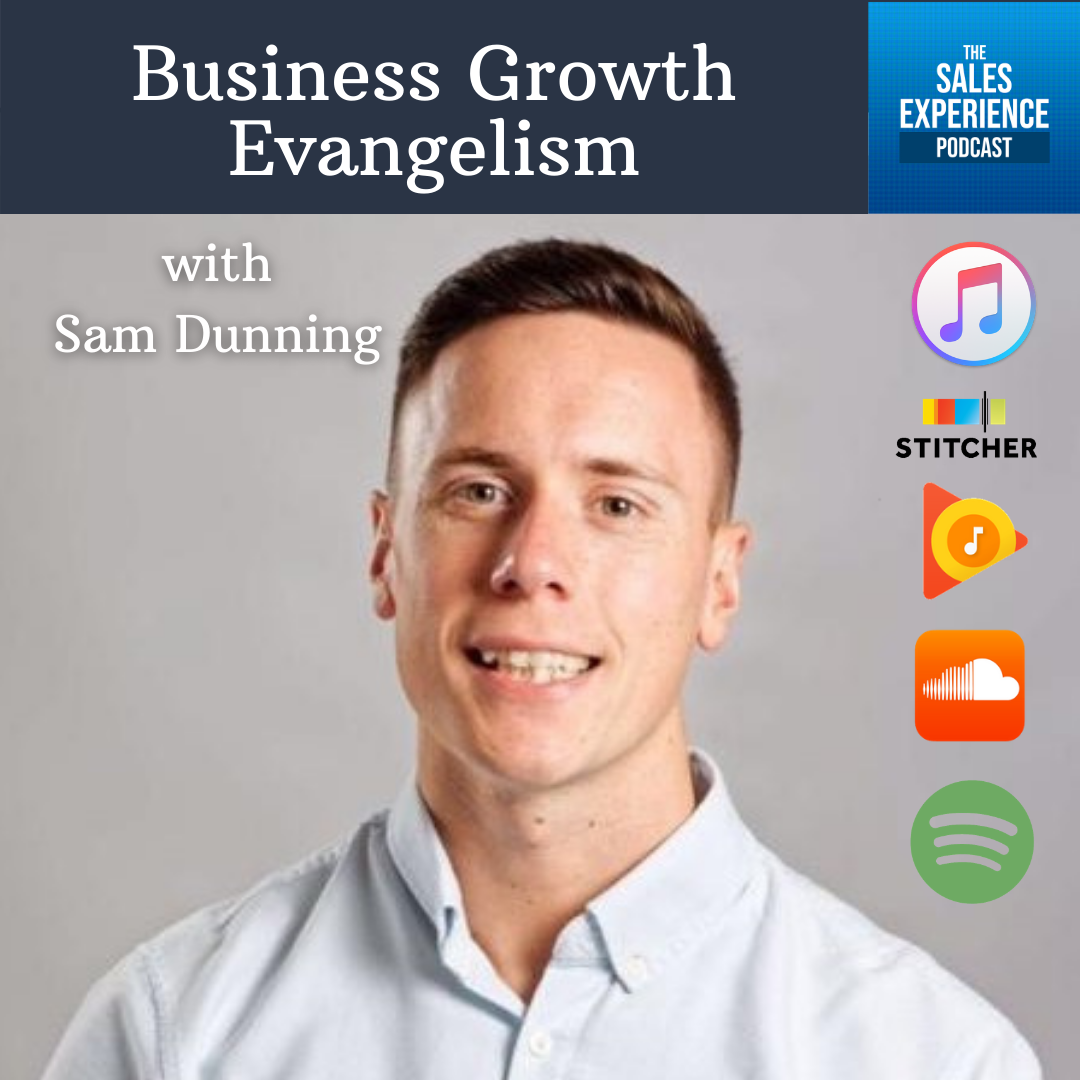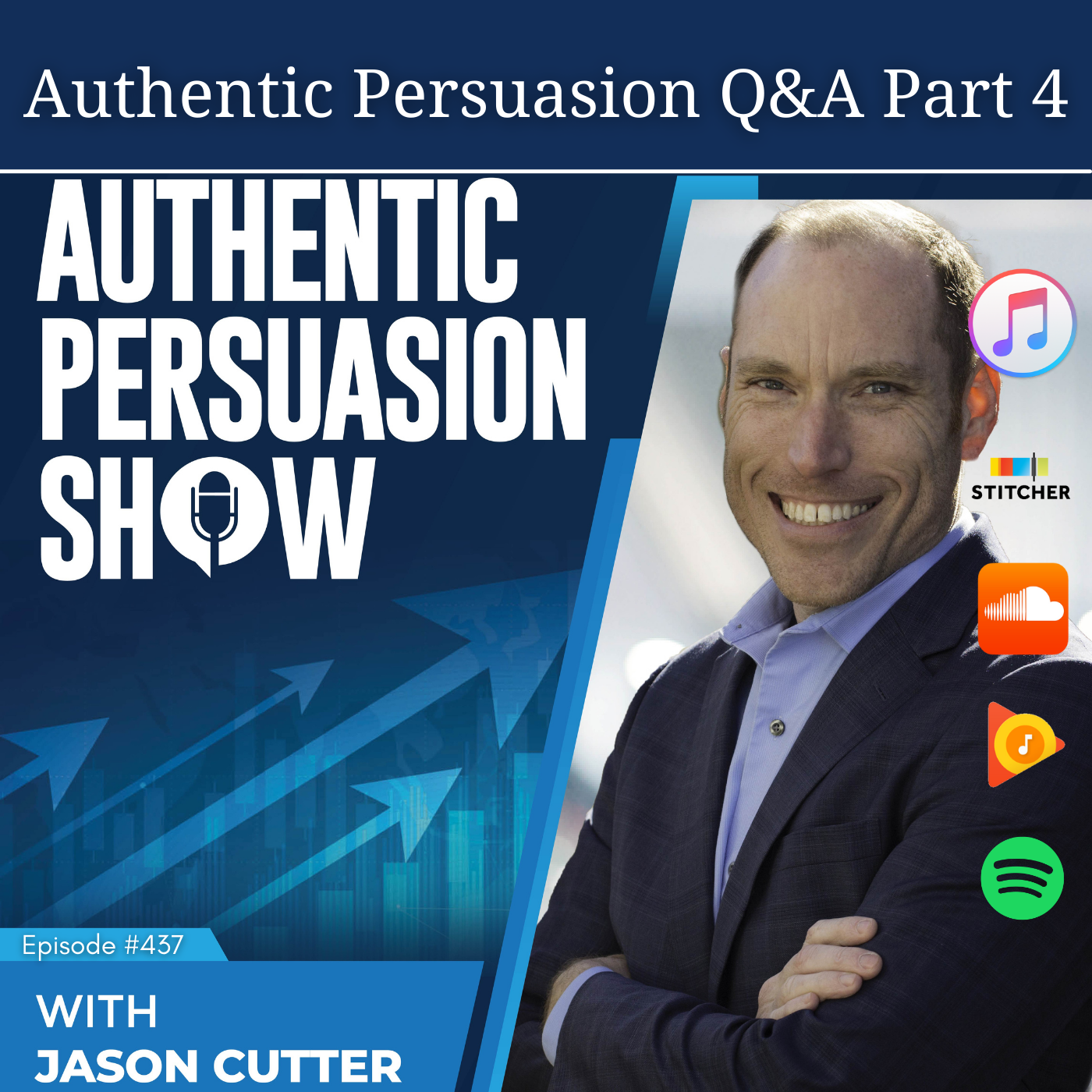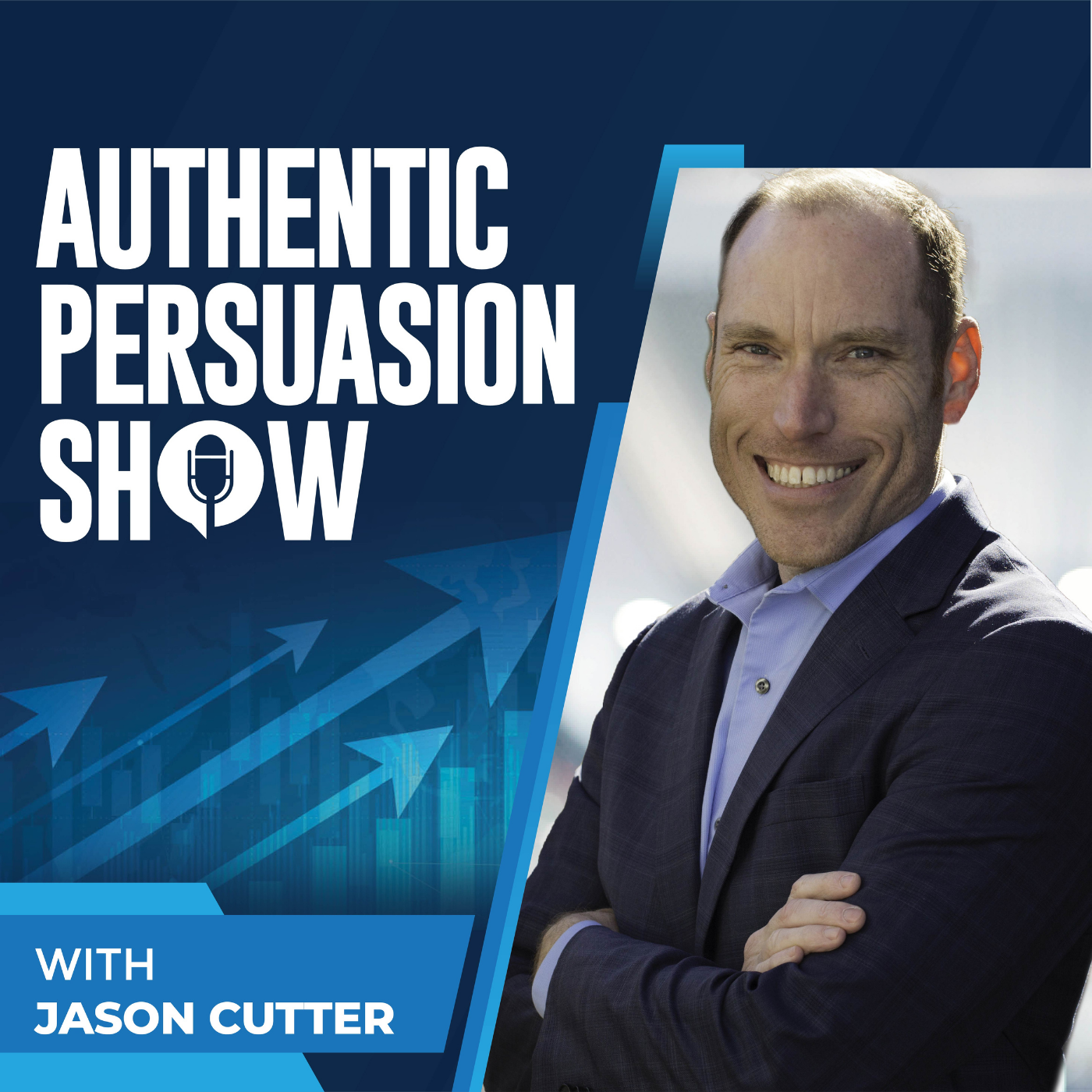Episode Transcript
Jason [00:00:00]:
This is the authentic persuasion show. Hey there, and welcome to episode 600 of the Authentic Persuasion show. It's kind of a fun milestone. It's not one of like the biggest milestones, like a, you know, 500 or a thousand or 10,000th episode, something like that. It's got a nice round number to it. It's one of those things where it's increments of 100 and what should you do? And we celebrate it. In the grand scheme of things.
Jason [00:00:30]:
It's not a huge milestone, but it's still fun, it's still exciting. It's still great to think that this is the 6th hundredth episode of the show. It started out as the sales experience podcast and then became the authentic persuasion show when my book launched. And so it's still fun. It's still amazing to think of how many collective hours of podcasts between this and my other podcasts are out there now for people to learn from now and in the future. And they will always be out there kind of like pee in a swimming pool. You're never getting it off the Internet. That's how the Internet works.
Jason [00:01:03]:
And so, here we are. Let's go. Let's talk about what's really important now. Episode 595. I spoke about your one job that AI cannot replace. If you didn't listen to that, please go back and listen to that because it's so important. It kind of sets up the conversation for today. Now, in the biggest part that you have as a salesperson in dealing with another human is some very important things.
Jason [00:01:28]:
And I see this a lot as something that's missing in people in general. And, in fact, one of the nice, cool parts about what I do for the podcast, I get to interview a lot of great guests. This season is all about professional sales educators. So it's professors and sometimes people with phds, and they're doing research, and they're getting out there and really researching and collecting things in a way that I don't. I just look at all these scenarios and talk to companies and talk to salespeople and do training and just listen and observe and see things. They're actually compiling research, which is so fun. And one of the biggest things is that, and has come up several times, is emotional intelligence. Now, what is emotional intelligence? Well, there's so many different definitions.
Jason [00:02:14]:
The biggest thing for me and where I put emotional intelligence is it's the ability to understand at an emotional level other people, where they're at, what's going on, and potentially where they want to be. It's really understanding things. It's one of the challenges with someone who has, let's say, like autism and something like that is a lot of times they don't have that emotional intelligence. Right. There's some people out there where they just don't have that. There's something different with the wiring, and they just don't pick up on those cues. I've worked with many people who have Asperger's as a trait that they have, and they really don't pick up on a lot of cues, especially socially, is that they're missing the ability to really sense what's going on socially and emotionally, and it makes for an interesting environment. They're usually really focused, really driven, work like crazy, and think everyone else should work like crazy because they just don't understand, let's say, societal norms.
Jason [00:03:23]:
And that's in air quotes, because there are no normal things, but there's just kind of what we think of as a group, right? Like 40 to 50, 60 hours work weeks, Monday through Friday, and certain things that are a commonplace in this day and age, versus someone who has Asperger's who might be like, I don't understand. Why is everyone not working 18, 20 hours a day? Look at Elon Musk as an example, and he's even talked about this publicly. And before he talked about it public, you could see it in his habits, which was sleeping at the office, working nearly 24 hours a day, expecting everyone else to work 24 hours a day. Super driven, get amazing results. But at what cost? Right? Like, from a relationship with other people, especially coworkers or employees. And so emotional intelligence is so important in a role like sales versus engineering, because I see a lot of people who, they might not have a very high emotional intelligence level when they're in engineering or science or research or operations, finance, things like that. That's not as important. You could say that it's always important because you have coworkers, you have teams, you're dealing with other people, but if your job is not focused on other people, but it's just focused on doing what you do, let's say, like, as an engineer designing and building things, then your emotional intelligence level isn't as critical as it is with sales.
Jason [00:04:52]:
Now, here's the challenge, is that most people who get into sales, they're doing it because they either like making money or they like talking to and. Or helping people, or they're in a group of, like, didn't have anything else to do, needed a job, looked for a job, got into it, and not sure, if it's the right fit. And so what happens is somebody's in sales, they got to deal with people, and you can't do what you've always done before. And this is the biggest challenge, I think, that's facing sales right now is that typically selling is telling. It's about telling someone about your product and service and explaining it. I recently did an interview with Dr. April Kemp. It's coming out in a few months.
Jason [00:05:39]:
But what was funny is she used the expression show up and throw up. As far as what salespeople do, they show up to a meeting or whatever, and they just are throwing up everything they know, everything they can about their product, their service, their company, how amazing they are, and they just go into that mode. And back in the day, that might have been tolerable when people did not have a choice because they couldn't find out about your product or service any other way than dealing with you or your company. Right? Like, if you wanted to find out what was the best car to buy, you had to go to a dealership and talk to salespeople and test drive cars and see what was available. And that was it. Those were your options? That's it, right? Like, you could find a car and driver magazine. You could read about cars. You could kind of try to see what's in the newspapers back in the day.
Jason [00:06:30]:
Dating myself, obviously, but you didn't really have much of a choice when it came time to buy a car, you had to run the gauntlet of dealerships. And so that isn't the case anymore with the Internet. People have information. The Internet has leveled the playing field as far as salespeople and buyers. And that's truly what's changed the game with sales now for buyers. And this again, what I talked about in episode 595, why it's so important to make sure you go and check that out. Is that what a buyer wants? Business to consumer, business to business? It doesn't matter. Remember, it's h to h.
Jason [00:07:05]:
It's human to human. I don't care what you sell. You think what you sell is the most unique thing in the world, and you have the most unique buyers. And that's absolutely not true because it's just human to human. All that matters is that you're dealing with humans, and humans are fundamentally the same ish when you really go down deep enough and for the strategies on how to help them get unstuck. And so what it takes is a high level of emotional intelligence. Now, you might not have it. You might think that you have it.
Jason [00:07:36]:
You're like, I am really emotionally intelligent. Like, I pick up on everything and I pick up on cues. I don't think that's the case for a lot of people. And here's why. To have a high level of emotional intelligence, you have to be amazing in two categories. The first one is you have to be deeply, genuinely curious. You have to have a level of curiosity that just never stops. People, places, things, business, concepts, ideas.
Jason [00:08:10]:
Always curious, always open, always exploring. So many people out there have a, I know this, and I'm not interested in learning more because I already know everything that I need to know about X, Y and Z. It's one of those reasons why there's topics like politics and religion and things like that that you can't talk about because you have your opinions, somebody else has their opinions, and no one's actually curious and open minded as to why you think that way. And is there a place in the middle? It's just me versus you. It's me versus anyone who doesn't feel like I do or believe like I do. When you're in a sales role that doesn't work. You can't come at it anymore with this attitude of like, here's what I know. Here's what I believe, here's what I sell.
Jason [00:08:57]:
Take it or leave it. Like, I'm going to sell you this one way, and here's how this works. And you can either buy from me or not. That doesn't work. So you have to be curious. Remember, and I say this all the time because it's human to human, right? Because that's all that matters. Like, at the base, fundamental level, you are dealing with somebody who only cares about themselves. And I know you're saying that, oh, is that me? I only care about myself.
Jason [00:09:23]:
That's got to be me. You must be talking about me. No, I'm talking about your potential customers. I'm talking about you, too. The problem is there can't be two heroes in the story. So you have to remember the potential buyer you're talking to. I'm not even going to say client because they're not a client yet. The person you're talking to only cares about themselves.
Jason [00:09:40]:
The best way to find out about them and see how you can help them. And then also, secret tip, insider tip here, pro tip, is that when you ask questions, when you're curious, they will feel like you care about them. Right. When you are deeply curious and you do. Part two, which I'm going to talk about here in a moment, then they will feel like you care about them more than anyone else cares about them, maybe even in their whole life. And so what happens is you have to be deeply, insanely curious. Now, let me tell you a story for myself. Anybody who knows me or thinks they know me, they know me right now.
Jason [00:10:16]:
2023. Halfway through 2023, right? There's this version. I'm not even going to say this version of me or this part of me. This is who I am. And I have evolved a lot over time. Now, there's also the past me, which has a marine biology degree focused on sharks, where I would rather have done anything other than deal with people like tagging sharks, standing on a boat, swimming in the water, running through, like, an estuary with a net to catch sharks by hand, was smarter and safer than dealing with people. And that's how I felt in my late teens and early twenty s. Then I realized I was pretty good with people.
Jason [00:10:57]:
I liked helping people. And then it's kind of evolved into here. But coming from a shy, awkward, bullied, late bloomer, only child who never fit in anywhere, and I still don't even think I fit in anywhere. That was not where I was. I was curious about things like dinosaurs. And then I became curious about sharks and marine life. And my age was the time when Shark week came out, right? I remember the very first shark week. And then I remember recording it on a vhs tape so I could watch it in between when it came out and the next year so I could keep rewatching the episodes.
Jason [00:11:36]:
I was insanely curious about things like that. I was not curious about people. And I've changed over time, so it gives you hope if you're like, I don't really care, and I'm not really curious, and I don't even know what to ask. Just get curious. Just ask open ended questions. Just be interested. More than interesting, that's one of the favorite lines that my mentor, David Meltzer uses all the time, is when in doubt, just be more interested. I'm interested in you than needing to be interesting.
Jason [00:12:09]:
Which means I don't need to tell my story and all my highlights and my exciting stuff and my glories and my certificates and my awards and my president's club and my vacations and my car. I don't care. I don't need to talk about that more than I am interested in finding out about you. So important when you do that, it opens so many doors. Now for part two, the other part of a high level of emotional intelligence. And how do you get there. The first one is a deeply, insanely amazing level of curiosity. The second part is active listening.
Jason [00:12:43]:
There's a lot of people out there who are very curious. They ask a lot of questions and they don't listen because they're hunting for an answer or trying to figure out with what you're answering. Does it align with what I believe and will it help me and can I benefit from it? I've met those kind of people. And again, going back to the taboo subjects that you're not supposed to talk about, like religion and politics, so many people ask questions and then they're just seeing like, are you on my team? Are you not? Do you believe what I believe or not? Are you a friend or are you a foe? And then I'm going to make that decision. Not curious from a sake of open minded curiosity and actually active listening, such that listening instead of thinking about what they're going to say next, but actually being curious and then actually using active listening and wanting to know the answers, it's the biggest thing you can do. It's one of the things where in sales in particular, the one tip I give to people as far as when they're going to be effective, when they're going to make money, and when they're going to start being successful, it's generally around the time where you no longer have to think about what you're going to say next. Once you have the script memorized or it's in front of you, once you have your game plan, your sales process, once you know and trust in yourself and you have the confidence to ask a question, listen for the answer, and then ask your next question or go a certain direction based on that answer, and you don't have to think about what's coming up next, and you don't have to think about what you're going to say while the other person is talking, that's when it's game on. For most people in sales.
Jason [00:14:27]:
That's when the blinders come off and it's just like, oh, my gosh, this is so easy now, right? Because then it's about listening. It's about being curious, and it's about active listening, where you're now listening more than you're thinking about what you're going to say. When you combine those two things and you genuinely care about people, then you will develop a sense of what other people are feeling, experiencing, been through. It will lead to your ability to have empathy for other people. And empathy is so important because once you have that, now we're talking about emotional intelligence, right? So once you're curious, when you have a high level of curiosity, when you're using active listening, it's leading you to empathy. And then with empathy comes emotional intelligence. And that's the big thing. And again, talking about it, continuing the conversation from episode 595, that's the thing that the robots can't replace.
Jason [00:15:29]:
They can't replace emotional intelligence. They can't replace empathy, at least not yet. Once they do, we're all in trouble. But when that time comes, it won't matter anyway. But that's what they can't replace. And here's what's interesting. This isn't just like, woo, woo, fluffy, like, oh, Kumbaya. This sounds great.
Jason [00:15:48]:
This guy's just trying to tell me to be soft or build relationships and all this cute, cuddly stuff. I'm telling you, this is what your buyers want. B to c, b to b, enterprise, door to door. It doesn't matter. This is what they want from you. Because I promise, it's not what they're getting from all the other sales yahoos that are calling them or harassing them, but what they want is this. If they're interacting with you, it's because they need something. They want something.
Jason [00:16:16]:
And they want somebody who cares enough about them to give them the right prescription. It's really all they want. And so remember that best thing you can do, change your game in sales. High level of emotional intelligence. And sales will become so much different for.
![[600] The One Super Power You Need To Have In Sales](https://episodes.castos.com/salesexperiencepodcast/images/1506731/The-One-Super-Power-You-Need-To-Have-In-Sales.png)


